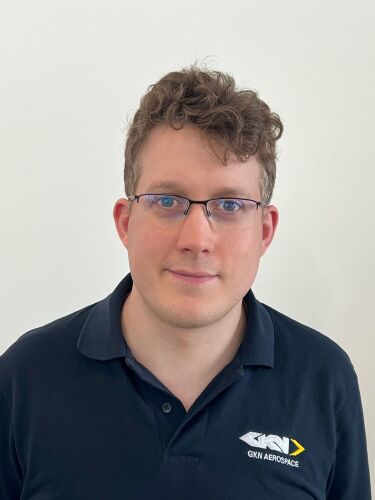
Home > Dr Ian Gent, Composite Research Engineer, GKN Aerospace : Understanding Neurodiversity.
Dr Ian Gent, Composite Research Engineer, GKN Aerospace : Understanding Neurodiversity.

Ian Gent is an alumnus of the Hub (2017-2020) and currently works as a research engineer at the GKN Aerospace Global Technology Centre (GTC) in Bristol. Ian worked on the Core Project: “Manufacturing for structural applications of multifunctional composites”. He is open about being neurodiverse and alongside his technical responsibilities is voluntarily working to raise awareness of neurodiversity within GKN Aerospace with a goal to make the company more inclusive to all employees and visitors. Neurodiversity is the idea that neurological differences in the human brain are natural. It challenges the traditional medical model that views these differences as needing to be cured, recognises the strengths and potential of neurodiverse individuals and promotes the acceptance, accommodation, and celebration of these differences. Neurodiversity is usually associated with conditions such as autism, ADHD, or dyslexia, but also encompasses many other neurotypes. Official UK statistics say that ~1 in 7 people are neurodiverse. Below is a summary from an interview with Ian conducted in December 2023.
“I was diagnosed as dyslexic at 18, but, I do not exhibit stereotypical dyslexic traits. My dyslexia is less to do with my literacy ability, and more to do with my struggles with short-term memory, which leads to slow writing speed and difficulties in completing sentences. I was lucky that I was supported at both school and university before and after my diagnosis by being allowed extra time in exams and the use of assistive technologies. Later, I self-diagnosed myself as being both autistic and an ADHD (Attention-deficit/hyperactivity disorder) during my PhD due to the challenges that I could not attribute to what I knew of dyslexia. I am seeking professional diagnoses for both of these conditions but I strongly feel that people should be able to access the help that they may need without an expensive and time-consuming (an ADHD diagnosis can be a 3-7year wait) diagnosis process. I also do not need the legal protections of a diagnosis due to my previous dyslexia diagnosis, I struggle with subjectivity, and I want to remove some of what I feel around my personal situation and aid my mental health. I feel that due to the current state of the NHS in the UK, diagnosis processes can also be inherently unfair. My personal experience of an autism assessment was being offered a triage appointment after being on the waiting list for a year and then being discharged from the autism service because I was not in mental health crisis, I had a job, and I could “communicate with nuance and humour”. Masking, or hiding traits to fit in socially, is a big issue for female and adult neurodivergent people, which I do not feel was properly assessed in this appointment. I see neurodiverse traits in two ways – weaknesses or strengths. On the weakness side, something that seems like a quirk to a neurotypical person may be completely debilitating for a neurodiverse person. For example, the desk that I like to use has been removed from the hot desk system because I can be badly affected by changes in routine. If I was to arrive and find someone else sitting in that location, it could completely throw my focus for half a day or more. As for strengths, neurodiverse people can excel in attention to detail, and out of the box thinking due to the different way that their brains may process information. A lot of high performing people in STEM, business, and popular culture are neurodiverse. When I joined GKN Aerospace, an autistic internship programme with the University of the West of England was starting. I became a mentor to the two interns and one of them was hired as a full time engineer after their internship. After this, I was approached by our HR team to set up a local version of our “Mastering Neurodiverse Strengths” Employee Resource Group, with the intention to educate GTC residents about neurodiversity and make the work environment more inclusive. I gave a presentation as an introduction to neurodiversity, which was well received. In addition, we have assigned neurodiversity to all present and future GTC residents and GKN Aerospace have signed up to the Neurodiversity in Business Charter. I am very passionate about neurodiversity because it is an inherent part of myself. As a result, I am not shy in saying that I am neurodiverse publicly and people at GKN Aerospace have acknowledged me for making it more normal to disclose neurodiversity within the company, which I am proud of”.